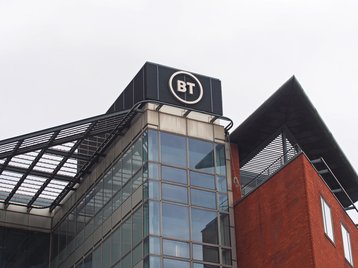A £1.3 billion ($1.65bn) case against BT for allegedly overcharging millions of customers for fixed telephone lines got underway earlier this week in the UK.
The case, which started on January 29, is expected to be heard over the next eight weeks and is taking place in the Competition Appeal Tribunal.
BT is accused of overcharging around 3.7 million landline customers in a historic case led by former Ofcom official Justin Le Patourel that alleges BT took advantage of a dominant market position to charge “excessive” prices for landline customers, many of them elderly.
BT has previously disputed the accusations and is fighting the allegations in court.
The telco said the case is "profoundly flawed" and ignores basic economic principles and market practices.
Le Patourel's case against BT dates back to the period between 2009 and 2017, where the claimants allege BT unfairly charged customers who took a standalone fixed voice (SFV) connection during this period before British telecoms regulator Ofcom stepped in.
If the case is ruled in favor of Le Patourel, it could be worth between £300 ($381) to £400 ($508) per customer.
Following Ofcom's intervention, BT agreed to lower its prices in 2018, but that didn't stop a class action lawsuit being launched in 2021 by Le Patourel.
“Time really is of the essence,” said Le Patourel. “More than 40 percent of our claimants are aged over 70, and over 150 of them are dying every day. It really is vital that BT should refund every one of them as soon as possible.”
Le Patourel worked at Ofcom from 2003 through to 2016. During his tenure, he held senior roles, including head of market intelligence, and consumer policy and protection principal.
For BT, the case could be an expensive one and comes at a time when the telco is pursuing cost-cutting measures.
BT announced last year it expects to cut up to 55,000 jobs by the end of the decade as part of these measures, as it aims to utilize artificial intelligence (AI).
BT has previously increased its cost savings target from £2.5 billion ($3.2bn) to £3bn ($3.8bn) by the end of 2025.






